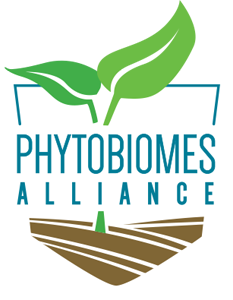
Trevor Charles

Role in Phytobiomes Alliance
Board of Directors, Controlled Environment Working Group, Coordinating Committee, Regulatory Working Group, Sponsor Representative
Key Projects
Metagenom Bio Life Science 2020
Affiliation
Waterloo Centre for Microbial Research
Waterloo Centre for Microbial Research
Position
Professor, Department of Biology; Director, Waterloo Centre for Microbial Research
Research Interests
- Plant-microbe interactions
- Symbiotic nitrogen fixation
- Plant growth promoting bacteria
- Functional metagenomics
- Bacterial genome engineering
- Synthetic biology, bioplastics and bioproducts
- Microbiome of controlled environment hydroponic systems
- Herbicide biodegradation
- Methanotroph metabolic engineering
Website
Additional Links
trevor.charles[at]uwaterloo.ca
Current Phytobiomes-related Projects
Glyphosate biodegradation
The most commonly used herbicide on Earth is glyphosate, which kills plants by inhibiting a key enzyme involved in aromatic amino acid synthesis. It is popular for a number of reasons; low toxicity to humans and animals, short residence time in soil and water due to degradation through microbial metabolic activity, and development of glyphosate tolerant varieties of crop plants. It is readily biodegraded by microbes in the soil, but the mechanisms are still not well understood. We are investigating glyphosate metabolism in agricultural soils by isolating and studying new strains of glyphosate degrading bacteria, searching for novel glyphosate degradation pathways, and detailed characterization of the pathway enzymes. This project will contribute towards the maintenance of glyphosate as an important and valuable tool for modern sustainable agriculture in Canada.
Harnessing the Microbiome for Superior Performance in Controlled Environment Agriculture (Metagenom Bio Inc.)
Hydroponic vegetable production in greenhouses and vertical farms represents opportunity for microbiome optimization. We are using DNA sequence-based microbial community analysis to improve detection of pathogens and beneficial microbes. This analysis is being integrated with other types of data that are collected in these often highly automated systems. Using well-characterized endophytic and rhizospheric strains of plant growth promoting and biocontrol bacteria, inoculants for seed treatment and application through fertigation systems are being developed.
News
- Trevor Charles appointed to the Phytobiomes Alliance Board of Directors
- Landmark paper calls for the need to develop the world’s microbiome biobanking infrastructure
- Phytobiomes Alliance Newsletter – July 2020
- The microbiome re-defined!
- Waterloo Centre for Microbial Research joins International Phytobiomes Alliance
